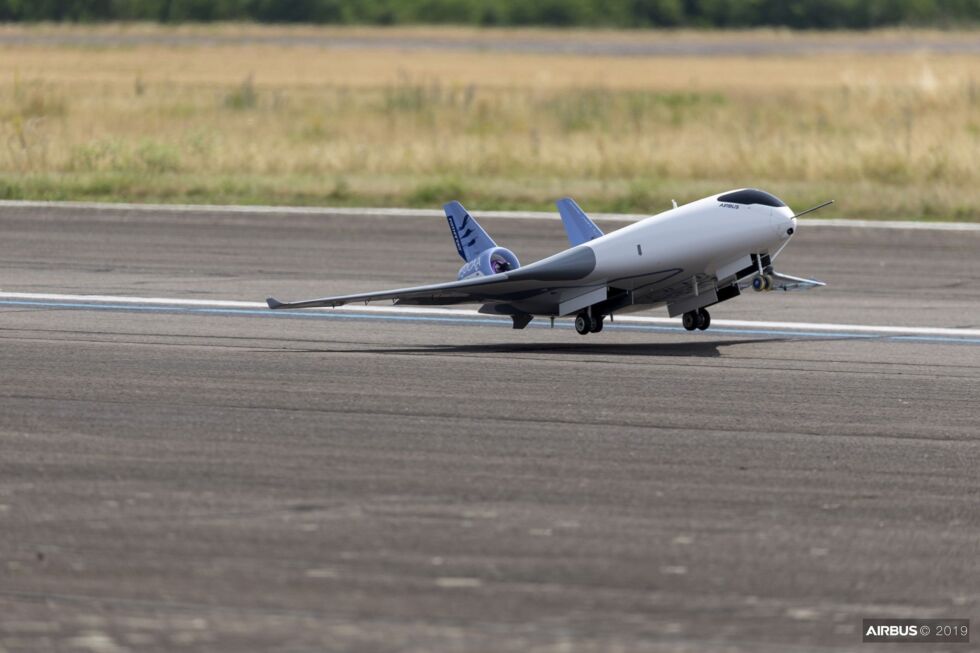-

In June 2019, MAVERIC first took to the skies. You might notice that it looks a bit small compared to the grass by the side of the runway—that's because MAVERIC is a scale model for testing low-speed and stall mechanics. [credit: Airbus ]
On Tuesday at the Singapore air show, Airbus revealed one of its new technology test beds. It's called MAVERIC—short for Model Aircraft for Validation and Experimentation of Robust Innovative Controls, and it eschews the traditional airliner shape for a more unconventional "blended wing body" (BWB) design. This packs a lot more interior volume into an aircraft than one with a traditional long, thin fuselage would for the same overall length and wingspan. In fact, Airbus has been flight testing MAVERIC in secret; the project began in 2017 and first flew in June 2019. However, don't expect to fly on it any time soon—although it's airworthy, it's also only a scale model, measuring 6.6 feet (2m) long and 10.5 feet (3.2m) wide.
"By testing disruptive aircraft configurations, Airbus is able to evaluate their potential as viable future products. Although there is no specific time line for entry-into-service, this technological demonstrator could be instrumental in bringing about change in commercial aircraft architectures for an environmentally sustainable future for the aviation industry," said Jean-Brice Dumont, EVP for Engineering Airbus, in a press release.
One big hope for the BWB design is to make a more efficient airliner. Unlike cars, trucks, buses, or even garbage trucks, electric passenger airliners remain a long way off. Air travel is going to keep burning hydrocarbons due to their sheer energy density, whether those are biofuels or not. And if we can't replace hydrocarbon fuels for air travel in the near- or mid-term, then surely we could find a way to get people to their destinations while releasing less CO2 into the atmosphere.
No comments:
Post a Comment